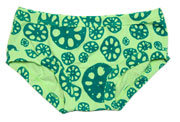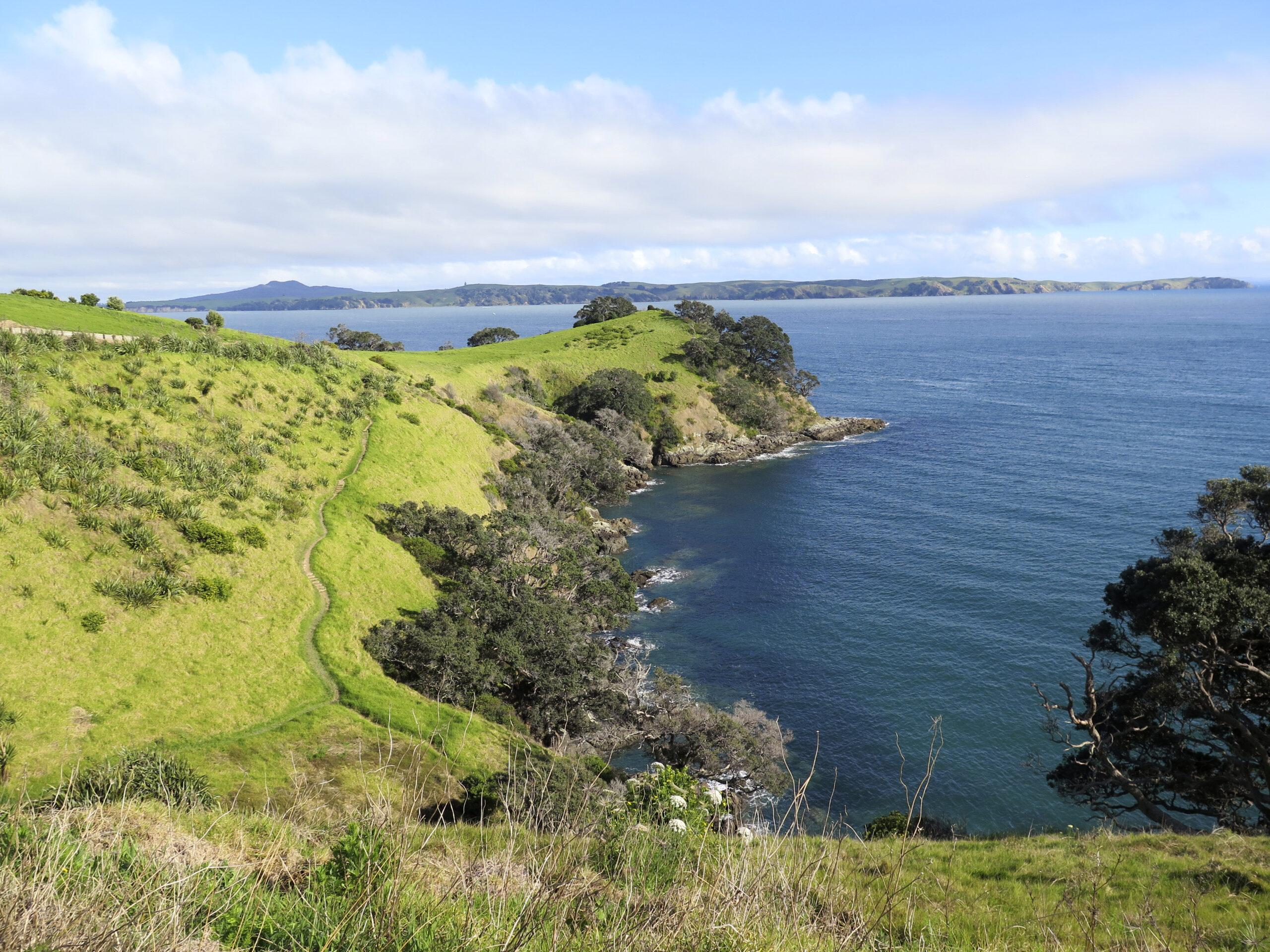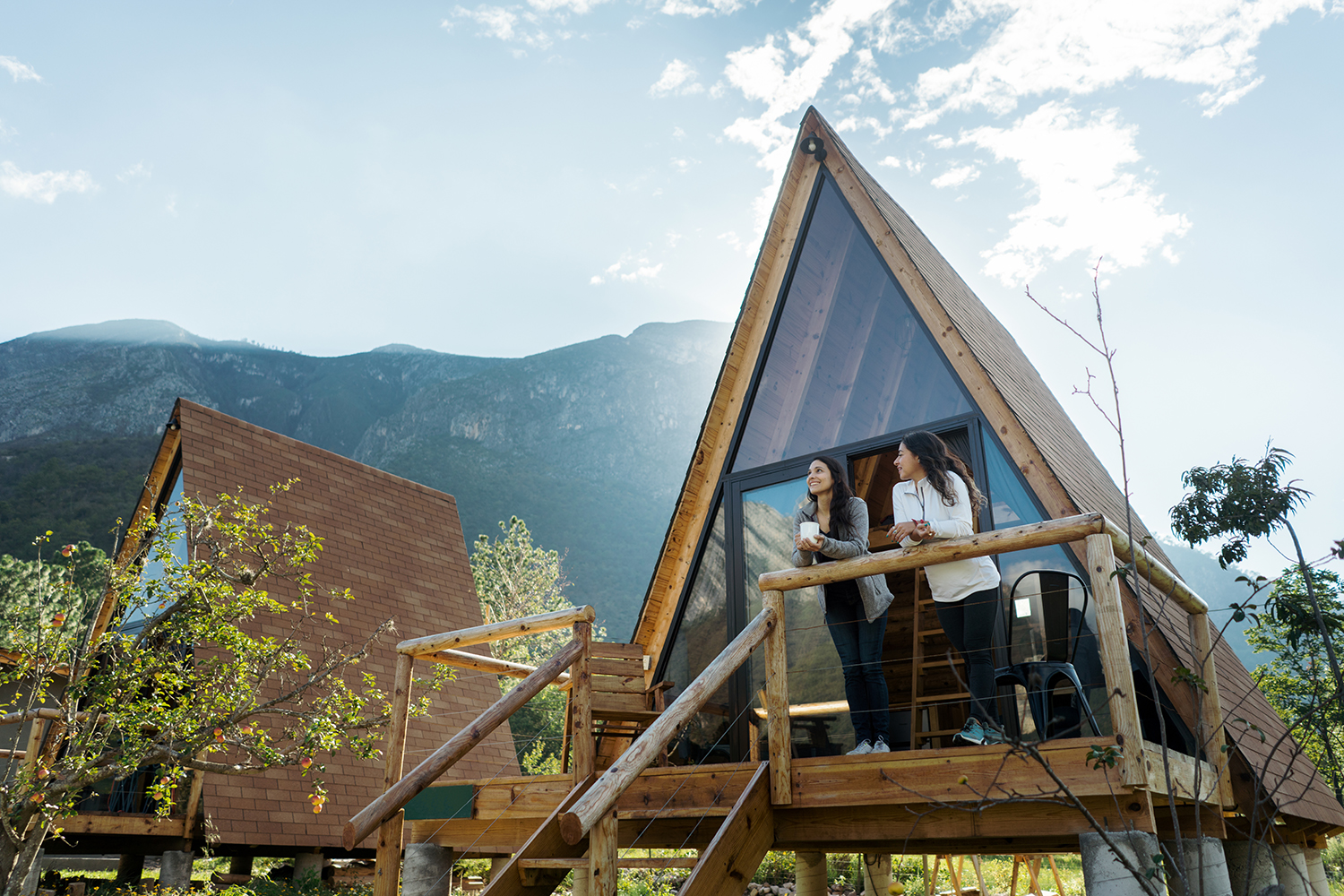Local flowers, sustainable undies and the annoying truth about toothpaste tubes
Local flowers, sustainable undies and the annoying truth about toothpaste tubes
I want to by my wife some sustainable underwear for her birthday. Please help!

The eco-status of the humble undie has been a legitimate subject for dinner party discussion at least since last year, when writer Joe Bennett tracked his $8.59 pack of Y-fronts all the way to the cotton fields of China. Thankfully, finding a sustainable—even sexy—pair of knickers is not nearly that much of a mission (bras are another story).
If comfort is a premium, Martinborough-based Thunderpants are amply cut and made with snug cotton/lycra, which means no squirming in wee lace numbers or hanging loose in granny bloomers. Thunderpants are hand-printed with original woodcut designs and made with minimal waste (www.thunderpants.co.nz, $25, left).
For super-warm buttocks, Icebreaker’s silky-soft and ultra-fine Nature range will keep your beloved’s bottom toasty. Icebreaker’s merino is sustainably produced and breathes better than synthetics, or even cotton. The range includes a thong and a cheeky low-cut hot pant with sexy side panelling (www.icebreaker.com, $25–$50).
Bamboo is another darling fibre of the sustainably minded. It grows like a weed without pesticides or fertilisers, and can be transformed into soft, breathable fabric. For bamboo undies, look no further than New Zealand Nature’s low-rise briefs. They promise to resist ride-up and come in red, almond and black. Made with 95 percent bamboo and five percent spandex, they carry the Oeko-Tex Standard 100 certification (www.nznature.co.nz, $20).
For some ladies, undies come in one fabric: cotton. For total eco-cred, you’ll need fair trade organic cotton knickers. Fernbird Ecostore offers cotton briefs in two styles: classic and low, both in white and black (www.fernbirdecostore.co.nz, $20).
Having wooed your beloved with some lovely new knickers, you may want to suggest a purge of the underwear drawer. Hotmilk, the New Zealand maternity underwear company, is collecting second-hand underwear for its Knickers for Africa programme. In Zimbabwe, wearing underwear means women are less likely to be sexually assaulted. Take unwanted lingerie to participating Hotmilk stockists (see www.hotmilklingerie.co.nz/knickers_for_africa for more info).

Is it more efficient to charge my laptop overnight, then unplug it and run it until the battery runs down, or to just leave it plugged in when I’m using it?
It may seem counter-intuitive, but according to EECA it is more efficient to leave your notebook plugged in while you’re using it. Some energy is lost when you change from one energy supply to another (in this case, switching from electrical energy to chemical energy from the laptop battery). That means your notebook will use more electricity if you charge it at night and run it on battery power during the day.
Leaving your laptop plugged in while you use it will also prolong its battery life, which diminishes every time it is charged and discharged.
To be most efficient, switch your computer off at the wall whenever you’re not using it. Don’t use a screensaver, and set your sleep and hibernate options so your machine powers down after a few minutes without use.
Why do toothpaste tubes come in boxes? They’re thrown away the minute I need to use the toothpaste.
While marketing may be to blame for toothpaste’s bulky packaging, design also plays a hand. Besides providing more surface area and opportunity for eye-catching branding (there’s a reason those shiny holographic effects are so popular), a box also allows for easy placement of barcodes without the worry of warping or buckling.
US toothpaste brand Crest came out with a stand-up pump device in the 90s, similar to Colgate’s Total Toothpaste Pump, which is still sold here without a box. It was said to use 70 percent less packaging, but the awkward shape made it difficult to ship, and in 1992 the Wall Street Journal reported that the pump only reduced packaging by about five percent.
You could simply make your own toothpaste: mix three parts baking soda with one part table salt; then for every quarter-cup of dry mix add three teaspoons of glycerine. Add water and a hint of peppermint oil, and you’re set. Homemade toothpaste doesn’t contain fluoride though, so discuss it with your dentist first.
Sometimes we can worry too much. Ultimately, the health of your teeth and gums is more important than the occasional extra bit of rubbish. Buy the largest tube you can find, and squeeze every last drop from it.

Are there florists that use local or organic flowers?
Millions of cut flowers fly around the world every day. New Zealand imported around nine million roses from India over the past three years, and Kiwi-grown blooms are flown to Japan, the US and Europe. Flying refrigerated flowers all over the globe leaves a hefty carbon footprint, but that doesn’t mean you need to stop buying flowers.
Floristry is one of the first industries to feel the pinch in tough times, and cheap imported blooms are becoming harder for florists to resist. Buying local flowers keeps our growers in business.
Shop around for a florist that can tell you where their blossoms originated and make you a local bouquet. In Wellington, eco-friendly florist Ekoru Flowers specialises in local blooms (www.ekoruflowers.co.nz). EDITED TO ADD: Ekoru Flowers has now closed; try Roses Are Red (www.rosesarered.co.nz) instead.
You could also write to David Carter, Minister of Agriculture, Forestry and Biosecurity, and ask him to support labelling flowers with their country of origin.
You’re unlikely to find organic flowers, unless you grow them yourself. Pests and viruses are very hard for commercial growers to control, and unlike organic vegetables, where lumpy bits are acceptable, florists demand perfection. Imported flowers may also be treated with pesticide to kill regulated organisms, and propagable species such as roses are ‘devitalised’ in Roundup.
Overseas, the industry is starting to cotton on to sustainability. Fair trade standards have been introduced to some Kenyan flower farms, and the Fair Flowers Fair Plants organisation (FFP; see www.fairflowersfairplants.com) runs a chain-of-custody certification scheme for the flower industry. The FFP label indicates that flowers have been sustainably and ethically cultivated. As yet, no New Zealand florists participate in the initiative.
For blooms that are lovely right to their roots, choose local flowers or a potted plant, for a longer lasting option. For a quirky gift alternative, try a chocolate or fruit bouquet from Edible Blooms.





